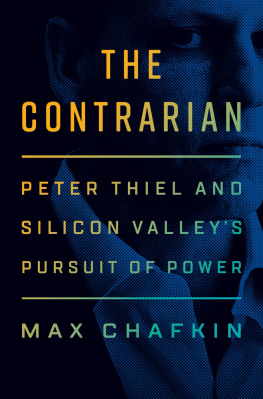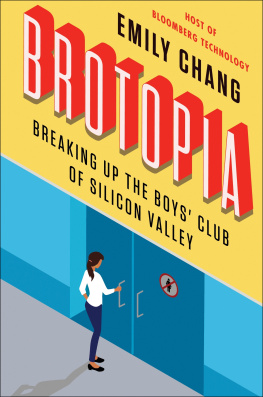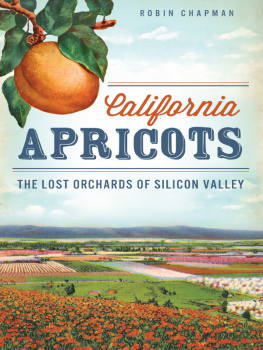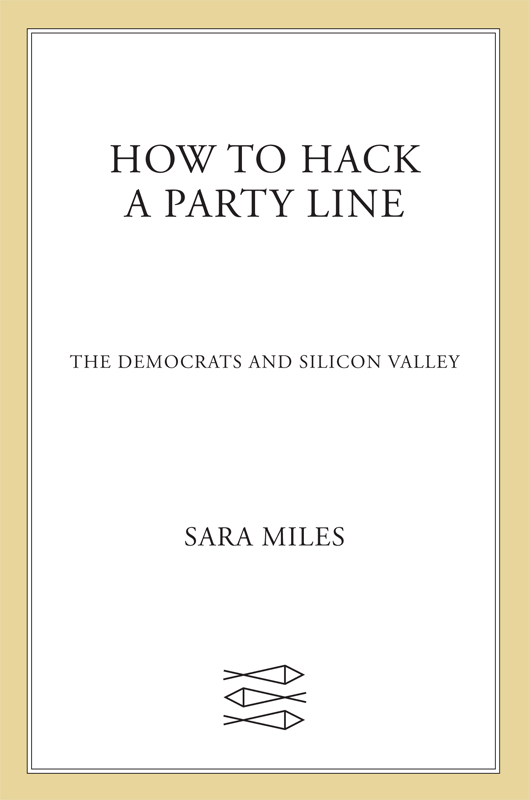Contents
Guide

The author and publisher have provided this e-book to you for your personal use only. You may not make this e-book publicly available in any way. Copyright infringement is against the law. If you believe the copy of this e-book you are reading infringes on the authors copyright, please notify the publisher at: us.macmillanusa.com/piracy.
For Martha
It was a perfect California morning in the fall of 1996, with the radio reporting a warm front and a hot market, and Wade Randlett was driving fast down Highway 280 toward Silicon Valley, laughing into a cell phone. With his wire-rimmed shades and suspenders, the dark-haired thirty-one-year-old could pass for a successful investment banker, except that he seemed to be having too much fun.
At Sand Hill Road, tires squealing, Randlett turned and raced his black Audi coupe up the landscaped driveway leading to Kleiner Perkins Caufield & Byers, Silicon Valleys most prestigious venture-capital firm.
The car phone rang again. Randlett slowed to forty-five. It was the White House. Ill call you back, he said, casually.
* * *
Id met Wade Randlett in July 1996, after months of pointless phone calls to various highly paid press secretaries and officials at the Democratic National Committee, the Clinton-Gore election campaign, and the California Democratic campaign headquarters. They were polite when I asked who was in charge of organizing the young entrepreneurs of Silicon Valley for ClintonYou know, computers, the Internet, Id say helpfully. Whos working on that?but none of the professional Democrats had a clue. Finally, an embittered union rep Id met at a party told me about Wade Randlett, a fund-raiser and campaign consultant she thought was connected. Hes one of those right-wing New Democrat boys, she said, her voice dripping with distaste. Young, arrogant, hates unions, loves rich people. Hell probably know.
Randlett was working out of his home, a small stucco in a pleasantly suburban part of San Francisco, across the street from a parochial school. A Great Dane the size of a sofa got to the door first, but Randlett reached a hand around and greeted me without interrupting his phone conversation. Weve got a twelve-couple that night at fifty a couple, he went on, motioning me in. Breakfast, no press. A dining-room table was piled high with towers of paper, files, and newspapers, a fax machine in the corner was spewing out documents, and there was a row of Styrofoam coffee cups adorning the mantel. Randlett was typing something into his notebook computer as he talked, and trying to ignore the other ringing phone. The dog lay down. Apart from a suit jacket draped over a chair and a strangely formal glass bookcase holding two framed photos and a dusty bottle of wine, there were no personal effects. The place looked as if someone had just moved in, or out. It looked like the desolate post-divorce wreck of someone who had married too young. It looked like a campaign.
Wade Randlett was a ridiculously handsome man. Tall and deep-voiced, with impeccable public manners and ruthless backroom savvy, he seemed almost physically propelled by ambition. In his early twenties, much as less imaginative members of his generation had taken up extreme sports, Randlett had hurled himself into politics. Now he was playing in the big leagues, building Silicon Valleys first political machine, and years of ferocious intensity and practice were paying off.
I liked Randlett, almost as much as I found him appalling. He had a great laugh grafted over a bottomless capacity for conspiracy. Randletts personality reflected what I thought of as some of the worst traits of politics and of Silicon Valley combinedaggression, arrogance, and ambitionyet he was neither venal nor dishonest. He was personally generous, professionally cutthroat, and had a wholehearted, contagious enthusiasm for his work. Hop in, hed say to me, handing me a cold drink and opening the door to his Audi. Lets drive down to Palo Alto, and Ill fill you in on the story.
Reared in Danville, one of the whitest, wealthiest, and most Republican strongholds of the San Francisco Bay Area, Randlett had set off for Princeton in the early eighties without any particular signs of political ambition. He carried the usual badges of affluencegood teeth, excellent schooling, and a few perfect navy-blue suitsand an unshakable confidence in his own abilities. The country was in the middle of the Reagan years, and Randlett rejected Reagan Republicanism with a visceral distaste. First there was their social outlook: Lets all go back to 1952, he said, summing up Reagans Morning in America vision. Then there was their idea of economics: screw the environment, dont invest in education, let business do whatever it likes and piss on the rest. And though he had even less patience for politically correct leftist whiners, Randlett became a vocal pro-choice Democratic activist on campus and a defender of individual liberties.
In 1987, Randlett returned to the Bay Area to earn a law degree, but the life of an upscale lawyer struck him as a fundamental waste of time. Everyone I knew was a lawyer, he said dismissively. Instead he went to work for George Marcus, a wealthy Greek-American real-estate developer in San Jose and a prominent Northern California fund-raiser for the Democratic Party. Marcus would, in the next decade, become chairman of the largest investment-real-estate brokerage firm in the country, and one of Silicon Valleys top ten political donors. I was as low as lowly gets, just hanging around and trying to see what I could learn, Randlett said, trying to sound modest. I made ten thousand cold calls my first year.
Before long, Randlett had set up shop as an independent fund-raiser and political consultant, working out of San Jose and hustling for stalwarts of the California Democratic Party like Dianne Feinstein, John Garamendi, Zoe Lofgren, and Art Torres. For nearly a decade, Randlett practiced the art of campaign fund-raising, developing a remarkable talent for getting complete strangers to write him checks for $50,000. He understood as well as anyone the nuances of the personal check, the corporate check, the check that was in the mail. He knew how to cold-call, how to bid a donor up, how to make one gift the occasion for the next. Im talking money, hed say happily as he opened the envelopes. Money, money, money, money, money.
Randletts fund-raising style relied heavily on the extraordinarily effective, if contradictory, mlange of class cues he exuded. He could use his prep-school manners and hand-sewn loafers to make his utter lack of embarrassment about asking for money seem clubbily upper-class, then switch in a heartbeat to flawless middle-American male jocularity, pitching as relentlessly as a salesman with a quota to fill.
Randlett had come of political age at a moment when moneys rule over politics was a given, a matter of factnot a trend to be deplored with high-minded whining about the corruption of civic values. Laments about campaign finance were tacky and old-fashioned, Randlett felt, and he affected a blunt, contemporary realism about the way the system worked.
Money, money, money, money, he repeated. If you dont understand it, it looks corrupt. But if you like someone, and they like you, theres nothing wrong with giving them money. It gets a conversation started.
Skilled as he was at the task, though, Randlett was too ambitious to spend his life dialing for dollars. Fund-raising occupied an odd position in the hierarchy of political parties: the work was both crass and essential. Good fund-raisers stitched together the networks that would support a campaign, set the candidates schedule and priorities, learned everyones secrets, and kept the whole enterprise afloat. In return, they were courted assiduously, rewarded handsomely, and regularly condescended to by snotty twenty-four-year-old political staffers. Like pollsters, fund-raisers earned a lot of money. But they were not supposed to engage in real politics themselves: they were considered technicians, rather than thinkers, and were expected to know their place.






